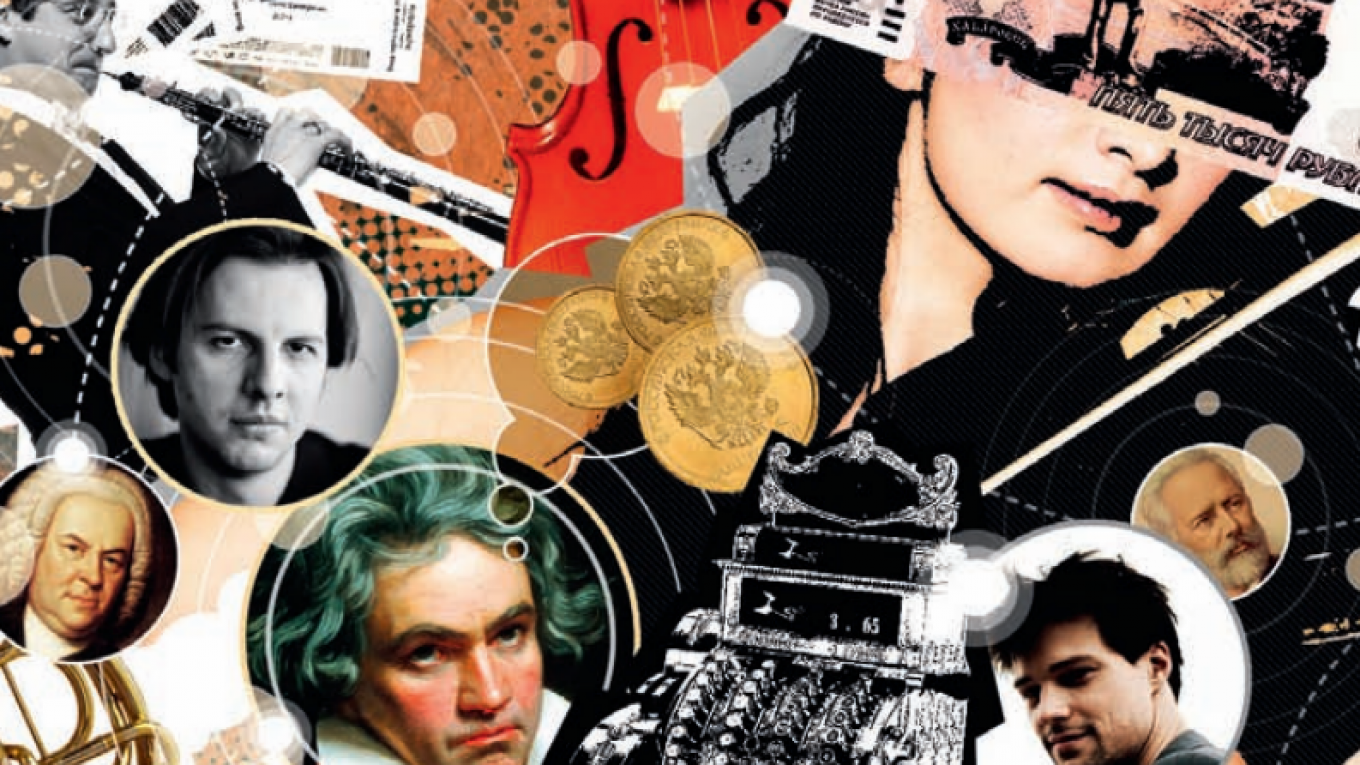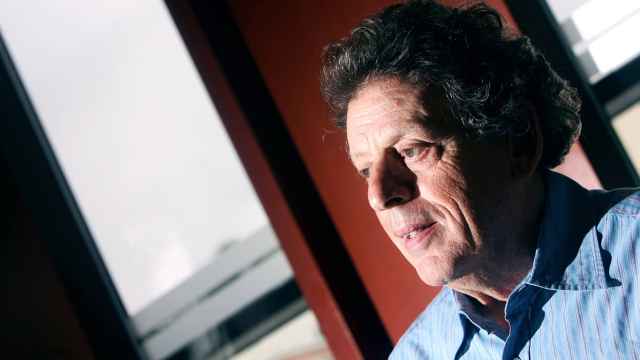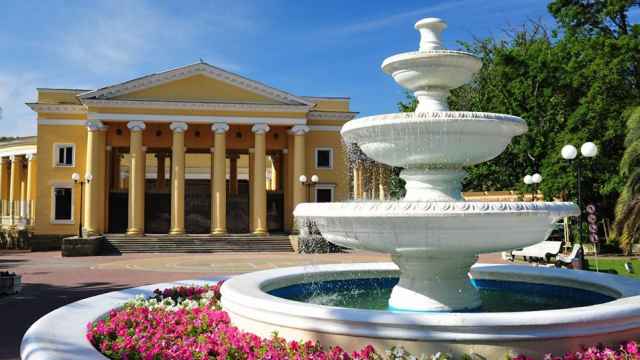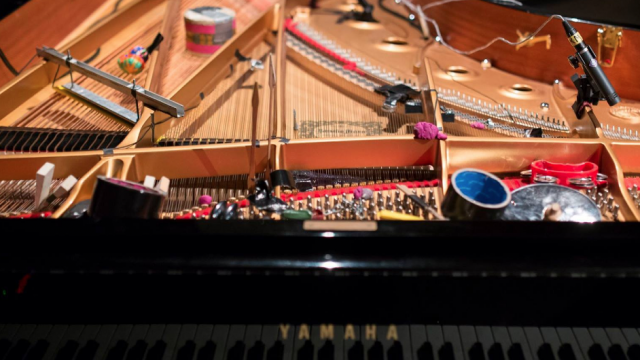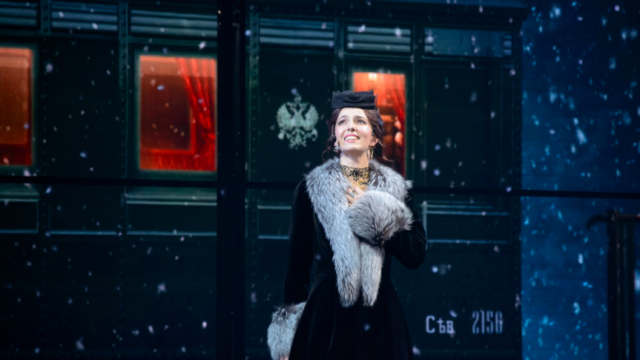It was, no doubt, a big deal: St. Petersburg’s world-famous Theater Of Europe debuted a new production of “Hamlet” at Moscow’s Golden Mask festival. The show was produced by the famous director Lev Dodin, and featured two of the leading stars of Russian cinema Danila Kozlovski and Elizaveta Boyarskaya.
But the price of the tickets did more than raise eyebrows. Ranging from 15,000 to 20,000 rubles ($270-360), they were shocking even by Moscow standards. Not, of course, that any of this stopped them from being sold out within a few hours —or appearing on the black market for as much as 60,000 rubles ($1080).
The Dodin show came only a few short weeks after a performance by in-demand conductor Teodor Currentzis and the MusicAeterna orchestra from Perm at Moscow’s Conservatory. The night-time concert featured Mozart, Beethoven and Rameau, and offered the same story: tickets with prices of up to 20,000 ($360), rising to 60,000 ($1080) on the black market.
Part of Moscow’s intellectual elite was outraged. The city was used to inflated prices for New Year’s Eve performances at the Bolshoi Ballet, but seeing such prices extended to highbrow intellectual performances was unusual. Some invoked the “moral responsibility” of the artist not to limit art to exclusive audiences. But others commented on the blunt mechanisms of the market: “If something is being sold at this price, it means that someone thinks it is worth the money.”
Of course, theater in Moscow does not always costs huge sums of money. Even prices at elite venues can be reasonable. Tickets to watch the world-famous opera festival Aix-en-Provence on tour at the Bolshoi, for example, were on sale for 2000-3000 rubles ($35-50).
And when the English National Opera toured at the Bolshoi, a number of unusually low-price tickets were made available. Fifteen hundred rubles ($27) was enough to reserve a place at performances of Hendel’s Rodelinde, directed by Richard Jones, or Britten’s Billy Budd, directed by David Alden.
But Moscow’s theater-going public—well-educated and weary of both swans and lakes—flocked to the box office. Tickets vanished almost immediately, re-emerging on the black market for 6000 rubles ($107). According to culture expert Anatoly Golubovsky, Moscow’s inflated theater prices are a relic of the Soviet era. In the Soviet consciousness, exclusive products were valuable only for the reason that they were rare. Owning something rare was, in and of itself, a sign of high social status, thus the high prices.
The Russian cultural space, loosely integrated into the global cultural space somewhat resembles the Soviet deficit economy. Even during the 1990s, international stars like Jessye Norman and Jose Carreras were able to command unusually high fees for performing in Moscow.
The shadow of deficit continues. And the more the Russian arts scene isolates itself from the world arts scene—because of ideological pressure and financial problems—the greater the effect. But today’s cultural deficit is no longer what it used to be. The demand is no longer so much for pop culture from the West. Instead, people are queuing up and paying for refined, intellectual culture—with a preference Russian art.
Moscow tastes are changing rapidly. For many years, the popular and accessible pianist Denis Matsuev topped the charts for ticket prices. The most expensive tickets for Matsuev cost 18,000 ($320) for three concerts, but the scalpers may sell them for several times as much.
These days, Matsuev is giving way to Currentzis, who is working in an even more uncompromising fashion. The producer of the Currentzis concert, Alexey Trifonov, has justified the high prices in terms of the costs of arranging a tour. “To tour in Moscow, we first have to bring high-level musicians to Perm—from Russia, Europe, even America. We have to pay for rehearsals, then bring everyone to Moscow, then pay for their housing, and then their fees.”
Others would argue the high prices to see the Perm ensemble have more to do with the artists’ own elevated financial demands. Whereas Western artists might agree to compromise when they are told about the economic crisis, Perm artists will not.
In Moscow’s fashionable Theater of Nations, prices for top show like Robert Wilson’s “Pushkin’s Tales” or Timofey Kuliabin’s “Ivanov” can reach 15 000 rubles ($270). But Maria Revyakina, the director of the theater, believes that inflated demand for cult shows, such as was seen this year at the Golden Mask Festival with Dodin’s “Hamlet,” is fundamentally unsustainable.
“There aren’t many people who are prepared to pay that much for those tickets,” she said. “Prices soon enough will head downward.” At the same time, Revyakina suggested that demand for complicated, experimental theatre is on the rise.
The threats of censorship and attack on creative freedom may, in a roundabout way, be contributing to a renaissance of this intellectual art. While not on the same level as Dodin or Currentzis, experimental pioneers like Dmitry Volkostrelov are more in demand than ever. Tickets to Volkostrelov’s shows now cost as much as 5000 rubles ($90). Last year, tickets for Vladimir Yurovski’s “Another Space”, a summer philharmonic festival of contemporary academic music, sold for 2000—5000 rubles ($35-90). These are previously unimaginable levels for avant-garde culture.
Moscow now boasts a theater-going public ready to spend hundreds of dollars on complicated cultural performances. But these are not necessarily the same people who seem ready to spend 20,000 rubles to see Teodor Currentzis conduct. Currentzis attracts a different audience, made up of the business and political moneyed elite.
Previously, moneyed elites’ tastes might have extended to opera singer Anna Netrebko, with her glamorous charm and popular repertoire. Now they are prepared to pay for exquisite cultural dishes—especially if these dishes have the aftertaste of deficit and exclusivity.
A Message from The Moscow Times:
Dear readers,
We are facing unprecedented challenges. Russia's Prosecutor General's Office has designated The Moscow Times as an "undesirable" organization, criminalizing our work and putting our staff at risk of prosecution. This follows our earlier unjust labeling as a "foreign agent."
These actions are direct attempts to silence independent journalism in Russia. The authorities claim our work "discredits the decisions of the Russian leadership." We see things differently: we strive to provide accurate, unbiased reporting on Russia.
We, the journalists of The Moscow Times, refuse to be silenced. But to continue our work, we need your help.
Your support, no matter how small, makes a world of difference. If you can, please support us monthly starting from just $2. It's quick to set up, and every contribution makes a significant impact.
By supporting The Moscow Times, you're defending open, independent journalism in the face of repression. Thank you for standing with us.
Remind me later.


